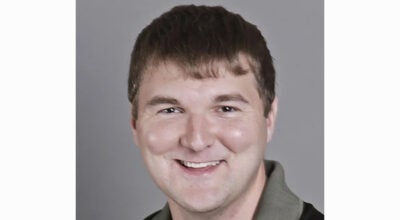Don’t end up like a Bursin’s donkey
Published 12:17 pm Wednesday, July 28, 2021
|
Getting your Trinity Audio player ready...
|
I recently came across Bursin’s Donkey. It’s not a real donkey at all, just a philosophical construct used by smart people to make a point.
First, full disclosure: they don’t really call it Bursin’s Donkey—they use a little more old-fashioned and graphic word for donkey. But this, as we always say, is a family column, so for today’s purposes, donkey it is.
The concept is simple. You take a donkey that is equally hungry and thirsty. Then you sit him at the exact midpoint of water on one side and food on the other. The idea is that he will be unable to make a decision about which to go to, and he’ll die of both starvation and dehydration all because of his unwillingness to make a decision. It’s a paradox.
Stubborn, that donkey.
Do people really have that much trouble making decisions?
You and I both know people who have a hard time deciding. I’m not just talking about where to go for supper or what to have when you get there. I’m talking about substantial decisions: what house to buy, what partner to marry, like that.
The problem is that they don’t just think, they overthink. They go from “on this hand” to “on the other hand” so much and so fast that they suffer from intellectual carpal tunnel syndrome. Listening to them is like listening to fingernails scratching down blackboards of anxiety. And that’s no fun.
They call it the paralysis of analysis. Not only is that a catchy rhyming phrase, but it also correctly describes someone who overthinks and won’t act. They generate lots of heat, but no motion at all.
Then there are the hyperactive people.
William F. Buckley, Jr. The founder of both National Review magazine and the modern conservative movement, once wrote a book that chronicled one week of his life. He called it Overdrive: A Personal Documentary. He got more done in a week than some do in a month and than most do in a year. I read that book when it came out in 1983, and I remain amazed at his energy, his work ethic, all done, as he put it, in overdrive. Reading it made me tired.
American’s most famous inventor was Thomas Edison. I’m reading about him in a gift from my grandchildren, Edmond Morris’s biography, aptly titled Edison. I got out of breath just reading that he held patents on 1,093 machines, systems, processes, and phenomena, and that he averaged one patent every ten to twelve days of his adult life. Good grief, didn’t the man ever sleep? Come to think of it, Morris says that Edison considered sleep an inconvenience, and slept three to four hours each night, though he freely napped during the day. Edison would walk around and making notes about things he should invent, even though he had no idea how to invent them. But he made it happen. He was a man in overdrive.
Life’s sweet spot is somewhere in the middle of these two extremes. Yes, there has to be time for thought and analysis, but the first stage has to lead to the second state—action. If not, we wind up like Bursin’s donkey.
My grandchildren were with me last weekend. Oh, what a time we had! I swear, I’m the biggest kid around when they gather. But there was one moment we should talk about. We had been swimming, and everyone was tired and hungry. When a momentary pause came over the fun, snacks suddenly appeared. Oh my, what a choice: food or fun.
For just a moment life suspended in perfect equipoise. Ice cream? Fun? Neither?
My grandson settled things. He grabbed his ice cream, got back into the water, and ate it while he played. To mix a metaphor, he had his cake and he ate it, too.
Bursin’s donkey? An ancient fable told to make a point.
The truth? Life doesn’t quite work that way. And we all know it. Even my grandson knows the work-around.
Now go have fun. And have some ice cream while you play.



